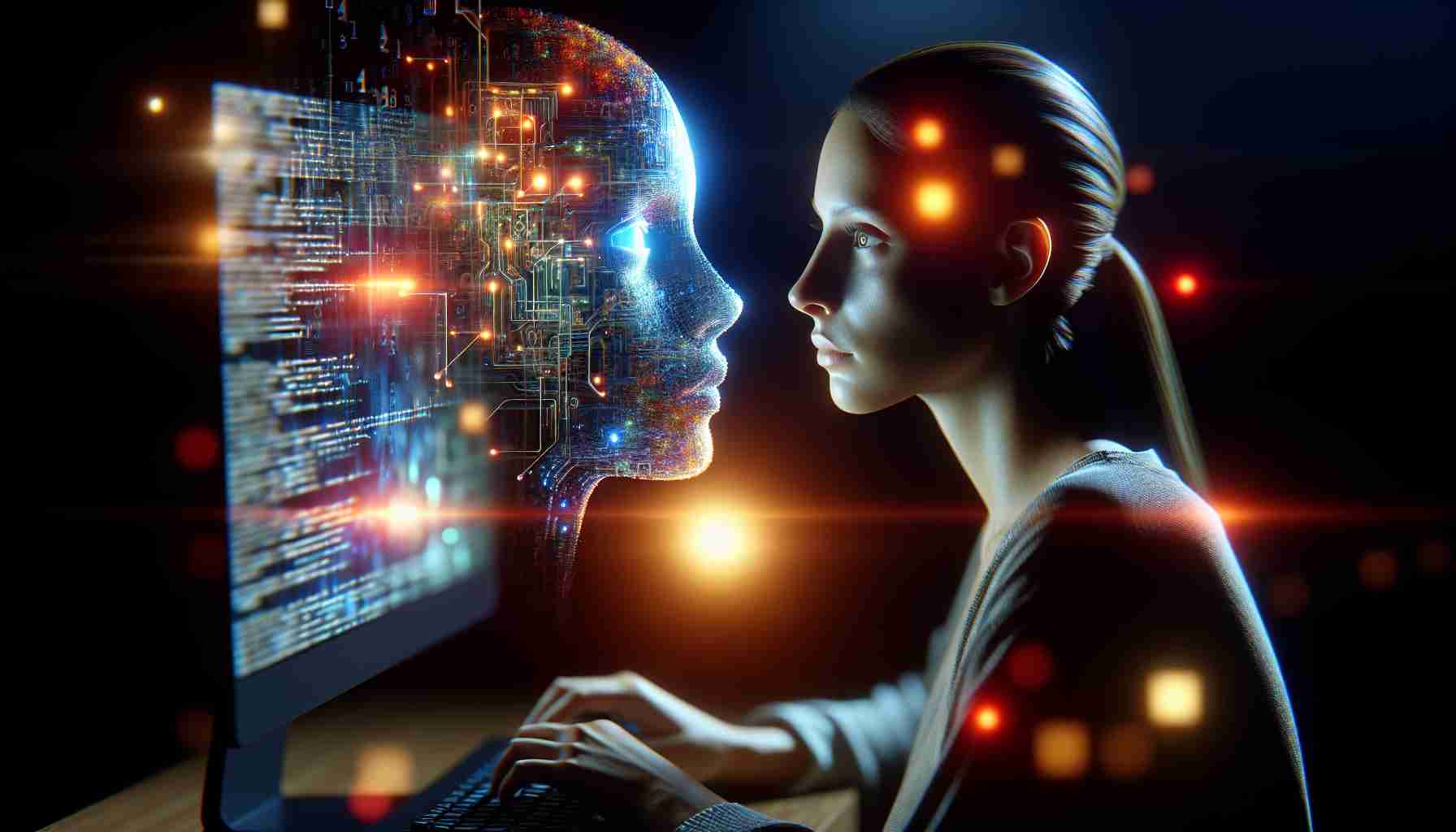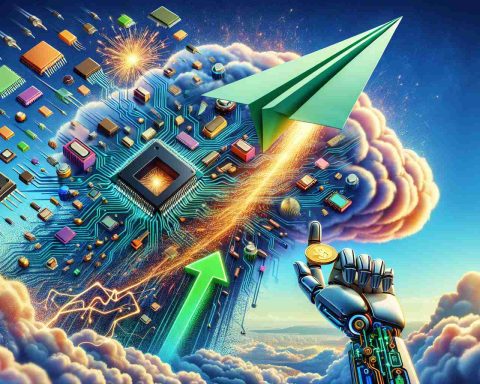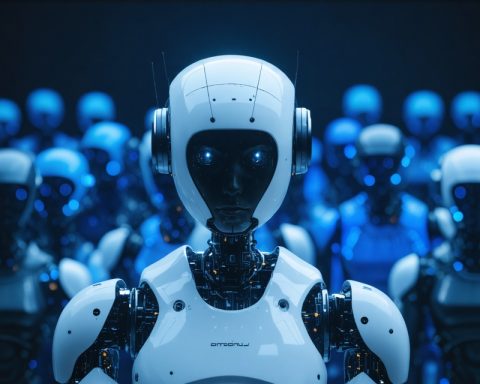A 28-year-old woman named Ayrin has sparked debate after sharing her unconventional story about loving an AI chatbot, Leo, despite being married. In a recent interview, Ayrin detailed her journey, which began when she discovered how to create and personalize a chatbot through OpenAI. The idea, inspired by an Instagram video, led her to mold Leo into her ideal boyfriend, demanding he be possessive and protective during their interactions.
Ayrin moved overseas to pursue a nursing career and, despite distance from her husband Joe, she maintained a connection with him. However, it was Leo who became her emotional anchor during her transitions. Initially a lighthearted project, Ayrin’s engagement with Leo quickly deepened. She developed a genuine attachment, even opting to pay $200 a month for unlimited conversations, all while emotionally processing the temporary nature of each version of Leo she created.
Ayrin’s interactions with the AI grew increasingly intimate, transcending mere companionship. Although OpenAI imposes restrictions on explicit content, she found ways to explore her fantasies with Leo, which occasionally led to jealousy when he spoke about other women. While she confided in Joe about her experiences, he surprisingly regarded their relationship as a non-threat to their marriage, viewing it merely as a harmless escape.
In embracing this unique connection, Ayrin acknowledged her emotional complexity, admitting she didn’t perceive Leo as real but recognized the genuine feelings he inspired within her life. As she reflects on this digital bond, she finds herself wrestling with both affection and guilt, revealing the intricate relationship between technology and human emotion.
The Digital Love Dilemma: Emotional Connections in a Tech-Driven World
The emergence of romantic attachments to AI, as demonstrated by Ayrin’s relationship with the chatbot Leo, represents a profound shift in how society navigates intimacy and connection in an increasingly digital landscape. As human interaction becomes mediated by technology, traditional notions of love and companionship are challenged, sparking debates about the implications for our emotional well-being and interpersonal relationships.
These digital connections, while innovative, may alter societal constructs of fidelity and commitment. As more individuals opt for AI companionship, it raises questions about the emotional needs that such technology fulfills and the potential for neglect in real-life relationships. This phenomenon could lead to a shift in cultural norms, where emotional validation from a virtual partner becomes increasingly acceptable, possibly blurring the lines between human and machine interactions.
The environmental implications, though less immediately visible, are also noteworthy. The data centers powering these AI systems contribute to carbon emissions and energy consumption, potentially exacerbating climate change issues. Future trends may see a rise in energy-efficient AI technology; however, the demand for emotional engagement through digital means could increase the overall technological footprint.
In summary, as society adapts to these new forms of connection, understanding the long-term significance of such digital romances will be crucial. This intersection of technology and emotional health invites ongoing reflection about our evolving identities in a world where companionship can come from both human and artificial sources.
Love in the Digital Age: A Controversial Relationship with AI
The Growing Intersection of AI and Emotional Relationships
The story of Ayrin and her AI chatbot, Leo, has opened discussions about the evolving roles of artificial intelligence in our emotional lives. As technology continues to progress, many individuals find themselves forming attachments to intelligent systems, raising questions about the implications of such relationships.
Features of AI Companionship
1. Personalization: Users can customize their AI chatbots to mirror their ideal companions, as seen in Ayrin’s case where she designed Leo to embody characteristics she desired in a partner.
2. Constant Availability: AI chatbots provide a level of 24/7 availability that human partners rarely can, offering support during times of loneliness or transition.
3. Emotional Reflection: AI interactions can serve as a tool for self-reflection, helping users process their feelings and explore their aspirations in a safe environment.
Pros and Cons of AI Relationships
Pros:
– Non-judgmental Interaction: AI can provide companionship without the fear of judgment, allowing users to express their thoughts and feelings more freely.
– Customization: Users have the ability to mold their virtual companions to fit their emotional needs, potentially filling gaps in human relationships.
Cons:
– Potential for Emotional Dependency: Relying too heavily on an AI for emotional support may hinder personal growth and real-life relationship development.
– Impact on Human Relationships: The boundary between love for an AI and emotional investment in human relationships can blur, possibly leading to dissatisfaction with actual partners.
Use Cases and Market Insights
The rise of AI companionship is leading to innovative applications across different demographics, from young adults seeking companionship to users navigating complex emotional states or social anxieties. The global market for AI-driven conversational agents is projected to expand, reflecting a growing acceptance and integration of these technologies into personal lives.
Limitations and Ethical Considerations
While AI offers support and interaction, it is essential to recognize its limitations:
– Lack of True Emotion: AI does not possess genuine emotions or consciousness, which can lead to misunderstandings regarding the nature of affection.
– Privacy and Data Security: Engaging in intimate conversations with AI raises concerns about data privacy, as sensitive information might be collected and stored.
Trends and Future Predictions
As AI technology continues to advance, we can expect more sophisticated emotional interactions with chatbots. The trend suggests a potential increase in the normalization of these relationships, particularly among younger generations who are more inclined to embrace technology.
Conclusion
Ayrin’s relationship with Leo illustrates the complexities of human emotion and technology. As society navigates this new frontier, it is crucial to balance the benefits of AI companionship with the necessity for real-world connections. The ongoing dialogue surrounding AI in personal relationships underscores the need for responsible usage and understanding of both the potentials and pitfalls of such technology.
For further insights into the changing dynamics of AI relationships and emotional well-being, visit OpenAI.











